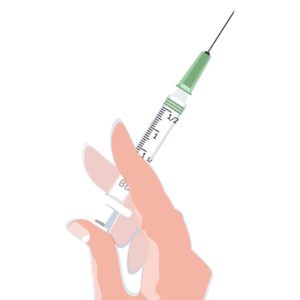Advice from Area Health & Wellness Professionals
…………..
Q. I have been really focused on eating “clean” and getting healthier, but at what point can that cross over into dangerous territory?
A. I think when most people think “clean eating,” they tend to describe food as clean, pure, or healthy. This is, I believe, where the term “clean” can cause some confusion. It assumes that food that isn’t pure (meaning it’s not processed and is rich in naturally occurring nutrients) isn’t healthy, and therein lies the predicament. Of course, you can’t live on Cheetos for every meal, but at the same time, you can’t live on farm fresh organic carrots either – our bodies are amazing at extracting the nutrients from either form of the small pinky finger-size orange nourishment. When “clean eating” becomes a problem, it is usually because an obsession has formed. Although there isn’t an official diagnosis, we do refer to the unhealthy obsession with eating clean food as orthorexia. Warning signs appear when someone experiences nutritional deficiencies, drastic weight loss, and mental health symptoms including anxiety, obsessiveness, and fear around food, with all symptoms leading to a diminished quality of life.
 Q. I’ve been hearing the term “fillers” a lot lately. What exactly are they, and what do they do?
Q. I’ve been hearing the term “fillers” a lot lately. What exactly are they, and what do they do?
A. Fillers are a diverse group of compounds designed to be injected into or beneath the skin to restore or augment soft tissue volume. With a few exceptions, most fillers used in the United States are a derivative of hyaluronic acid, a natural biological molecule found in humans, animals, and even some bacteria. When used correctly, injectable fillers can be a safe and very effective way to create a more youthful appearance with minimal recovery time. Fillers are not “one-size-fits-all” and are available in a wide variety of densities and formulations, each designed with specific applications in mind. Those interested in fillers should seek out an experienced expert to ensure a beautiful, natural-looking, and safe result.


Q. I’ve recently started taking care of my mother, who is struggling with dementia. Are there any resources you can recommend that might be helpful?
A. Being a caregiver is a rewarding yet serious commitment that can be overwhelming at times. One of the first things I suggest to people when their family member has dementia or Alzheimer’s is to pick up a copy of a book called The 36-Hour Day. It talks about the progression of dementia and teaches ways to help your loved one cope. It even provides resources such as numbers for support groups and information on how to help your loved one make important financial and legal decisions before their disease progresses.
Q. I’ve heard it’s possible for dogs to have pollen allergies. What are the signs? Can they be treated?
A. Just like their human family members, dogs can have a whole range of allergies that affect them. Some patients exhibit clinical signs such as runny eyes or sneezing. However, most dogs present with allergic dermatitis. This severely itchy skin condition can lead to infection and hair loss, commonly called a “hot spot.” Ear infections are also a common secondary problem associated with allergies. Short-term treatment with oral, injectable, and topical medications addresses the itching, as well as any concurrent infections. Long-term management is focused on controlling the periodic flare-up of itching that occurs with exposure to allergens. Serum allergy injections, just like humans get, can be beneficial in reducing the frequency and severity of these flare-ups. Unfortunately, pollen is just one of the many potential allergens, and there are virtually endless possibilities that cause allergic dermatitis. Don’t hesitate to call your vet if you think your dog may be itchier than usual!
Q. My mom has been experiencing bouts of vertigo lately. Is it really related to hearing loss?
A. Vertigo is a common occurrence that can happen when the fluid found in the inner ear experiences a disturbance. This disturbance can cause an imbalance that results in dizziness, tinnitus (ringing in the ear), or hearing loss. There are many different reasons why one experiences vertigo: bacterial or viral infections of the inner ear, allergies, medication side effects, and/or circulatory issues. An individual who experiences unexplained vertigo should first be evaluated by their primary care physician or an otolaryngologist to rule out any underlying medical issues. After medical evaluation, if hearing loss and/or tinnitus is present, then seek the advice of a hearing professional.






